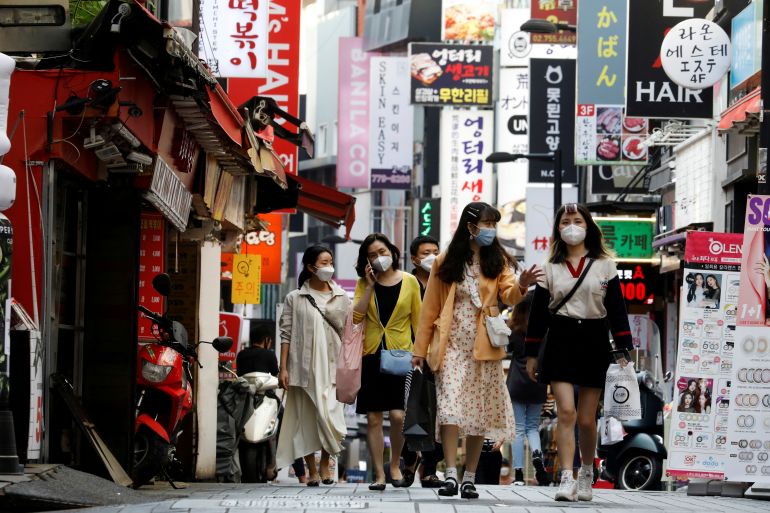South Korea to get 700,000 COVID shots from Israel as cases surge
Under the vaccine swap arrangement, South Korea will give Israel back the same number of shots currently on order from Pfizer.

South Korea has said it will receive 700,000 doses of Pfizer-BioNTech’s coronavirus vaccine from Israel on loan this week, in a bid to speed up immunisation amid a surge in infections around the capital, Seoul.
More than 1,000 cases were reported on Tuesday, the highest number since December and hundreds more than the 746 cases posted on Monday, Yonhap news agency reported, citing South Korean government health officials.
Keep reading
list of 4 itemsIndonesia copes with oxygen shortages as COVID cases quadruple
England set to lift COVID restrictions despite soaring cases
In Pictures: Biden says US closer to ‘independence’ from COVID
Under the vaccine swap arrangement announced by both governments on Tuesday, South Korea will give Israel back the same number of shots, already on order from Pfizer, in September and October.
South Korea has quickly distributed the COVID-19 vaccines it has, but has struggled to obtain enough doses in a timely manner amid tight global supplies, particularly in Asia.
“This is a win-win deal,” Israeli Prime Minister Naftali Bennett said in a statement announcing the deal on Tuesday. “Together we will beat the pandemic.”
After a stellar rollout, Israel has administered both shots to around 55 percent of its population and seen turnout plateau.
Korea Disease Control and Prevention Agency (KDCA) Director Jeong Eun-kyeong said the deal will allow South Korea to accelerate its vaccination plans, including providing shots to employees in some sectors that have a high amount of contact with other people.
Local authorities will decide who gets the vaccines, but she said priority could be given to street cleaners, delivery workers and retail employees, for example.

South Korean authorities said last week they are hoping to achieve herd immunity earlier than the current November target by inoculating at least 70 percent of the population with a minimum of one vaccine dose, mostly mRNA ones such as Pfizer’s.
Jeong said if the vaccination drive goes according to plan and South Korea finds itself with surplus doses later in the year after sending back the agreed doses to Israel, it too will look to share its stockpile with other countries.
South Korea has been battling persistent small outbreaks, prompting officials to delay some easing of social distancing rules.
Overall, the country has recorded more than 161,000 COVID-19 cases and at least 2,000 deaths, according to Johns Hopkins University.
Israel’s vaccination drive
Israel received a huge supply of the Pfizer-BioNTech vaccine shortly after its approval last year following an arrangement with the producers to share data about its effects.
That deal helped Israel roll out one of the world’s fastest inoculation drives but has also raised concerns about unused stock expiring.
The Palestinian Authority last month cancelled a deal that would have seen a million jabs from Israel’s inventory sent to the occupied West Bank.
The PA said the doses “were about to expire”. Israel insisted they were “completely valid”.
More than 80 percent of Israel’s adult population is fully inoculated against COVID-19 but cases are again rising, with officials raising concern about the surging Delta variant’s ability to evade vaccine protection and cause mild illness.